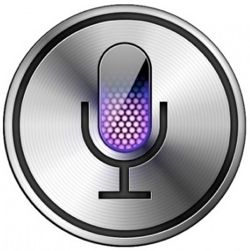Canadian provinces continue to struggle with the specifics of their distracted driving laws.
 In the latest case, in Nova Scotia, the Supreme Court sided with a motorist who was ticketed for using the Siri feature on an iPhone to ask for directions.
In the latest case, in Nova Scotia, the Supreme Court sided with a motorist who was ticketed for using the Siri feature on an iPhone to ask for directions.
The high court ruled in late October 2015 that employing the voice-activated navigational system did not constitute “use” of the cell phone, which would be illegal.
Justice Jamie Campbell said the related wording in the Nova Scotia’s Motor Vehicle Act was so simple as to be unclear and behind the times. He said other provinces were more specific in their distracted driving laws.
“The result (in Nova Scotia) is a law that is difficult for people to understand” Campbell wrote, echoing complaints in Canada and across the U.S. as appeals of distracted driving convictions continue to land in the courts.
The justice wrote:
‘Use’ does not encompass all interactions with hand-held devices that have cellular telephone functionality. When the driver, without looking at the screen of the device, engaged a voice-activated navigational system related directly to the safe operation of the vehicle, through a hand-held electronic communication device, he was not ‘using a cellular telephone.’
The defendant in the original case, a doctor named Ajirogho Enakeno Ikede, was cited in March 2015 in New Minas. He was charged with using a handheld cell phone on a highway.
The justice noted that Ikede was not looking at the cell phone because there was nothing to look at with the Siri software voice system.
The justice noted that Nova Scotia, “an early adopter” of distracted driving laws, did not define “use” in its wording. Other provinces such as New Brunswick subsequently “have provided more direction.”
The ruling pointed to other potential issues with the Nova Scotia law, such as using FaceTime or Skype on a tablet device, which would not be prohibited.
“The legislation in Nova Scotia is simple on its face. The problem is that in
its simplicity it has not kept pace with more complex evolving technology,” the justice concluded.
“It would be unfortunate if the important safety issue of distracted driving is left to a series of judicial decisions. Needless to say at this point, that is not a recipe for clarity.”
Read the Nova Scotia iPhone decision (PDF)

